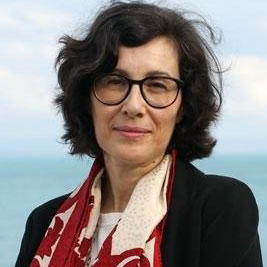Date:
Location:
The CMES/WCFIA Middle East Seminar presents
Malika Zeghal
Prince Alwaleed Bin Talal Professor in Contemporary Islamic Thought and Life in the Department of Near Eastern Languages and Civilization at Harvard University
Discussant: Kristen A. Stilt, Professor of Law and also Faculty Director of the Animal Law & Policy Program and Director of the Program on Law and Society in the Muslim World, Harvard Law School
Malika Zeghal is the Prince Alwaleed Bin Talal Professor in Contemporary Islamic Thought and Life in the Department of Near Eastern Languages and Civilization at Harvard University. She is also an Affiliated Professor of Government in the Government Department, and a member of the Committee on the Study of Religion. Her research focuses on the interaction between Islam and politics in the modern Middle East. She is particularly interested in studying the formation of modern Muslim states and their religious institutions, as well as the intellectual and political genealogies of Islamist movements in the region. She also has an interest in modern Islamic intellectual history in the Middle East, Europe and North America.
An alumna of the Ecole Normale Supérieure de la Rue d'Ulm (Paris, France), Malika Zeghal holds a PhD in Political Science from the Institut d'Etudes Politiques de Paris (1994). Before joining Harvard University in 2010, she was Associate Professor of the Anthropology and Sociology of Religion at the University of Chicago Divinity School. She is a Member of the Scientific Council of the Tunisian Academy of Sciences, Arts and Letters (Beit al-Hikma).
Malika Zeghal has published a study of the Egyptian ulama of al-Azhar since the 1950s and of their various forms of engagement with politics (Gardiens de l'Islam. Les oulémas d'al-Azhar dans l'Egypte contemporaine [Presses de Sciences Po, 1996]). She has also published a volume on Islam and politics in contemporary Morocco (Islamism in Morocco: Religion, Authoritarianism, and Electoral Politics [Markus Wiener, 2008]), which highlights in particular the role of Shaykh Yassine's political mysticism in the Islamist political opposition to the Moroccan monarchy, and has won the French Voices-Pen American Center Award. She has also edited a special issue of the Revue des Mondes Musulmans et de la Méditerranée, Intellectuels de l'islam contemporain. Nouvelles générations, nouveaux débats [123, 2008], on contemporary liberal Muslim thought. She is currently working on a book on Islam and the state in the Arab world in the modern period (19th-21th century), forthcoming at Princeton University Press.
With a team of graduate students in NELC, she is currently building a digital map of Islamic intellectual networks in the Maghrib and Egypt in the 1920s and 1930s. This project, called Afkar, is supported by a Grant from the Lasky-Barajas Dean’s Innovation Fund for Digital Arts and Humanities.
Contact: Liz Flanagan
